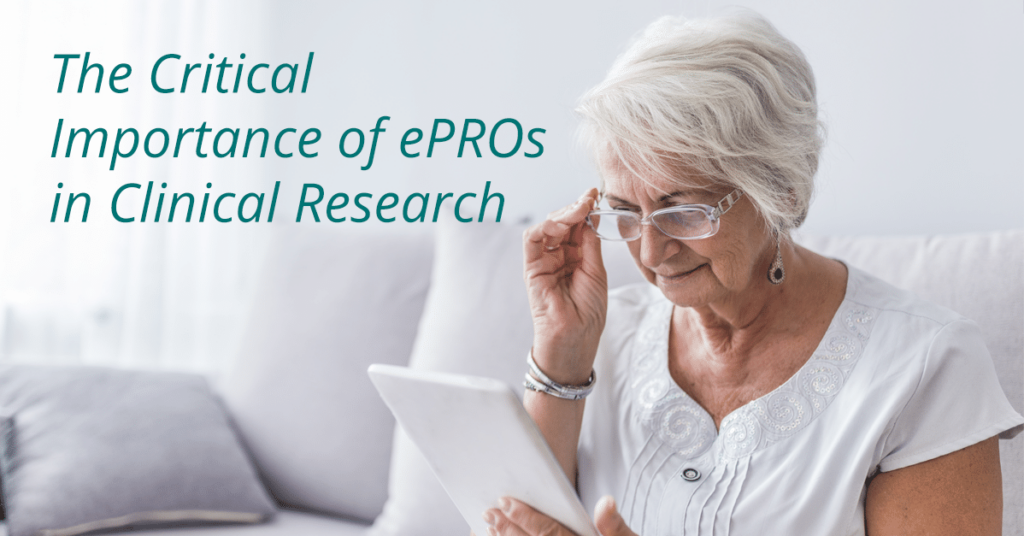PharmaVoice recently hosted a webinar that explored the growing importance of ePROs in clinical research. The COVID-19 pandemic has caused disruption for clinical trials that were already underway – from monitoring patient participation to data analysis – trials that are dependent on physical presence of participating patients and the research team are being impacted.
Leveraging technology in clinical research has never been as critical as it is today especially since there is a lot that is still unknown about the lasting impact of the COVID-19 pandemic. PharmaVoice noted that 24% of investigators they recently surveyed have stopped enrolling patients in clinical trials and the remainder were considering what measures they need to take to keep patients safe and maintain the integrity of the data.
There are immediate impacts of the pandemic that could disrupt ongoing studies. In some cases data is coming in, but monitors may not be in the facility to view it. Some data is flagged when it has likely been impacted so it can be addressed later. So how do you facilitate ongoing studies in the current healthcare landscape?
One panelist noted that the current crisis was a big wake up call. He noted a few advantages of ePROs:
Incorporating ePROs simplify the process so that collection of data is independent from a physical location
Study data can be enhanced since it can be collected and monitored in real time and issues can be quickly addressed
Interested in learning more about Navigating Cancer’s ePRO tool, Health Tracker?
The importance of remote monitoring
While telehealth is an important tool for interviewing patients, remote monitoring tools are equally important to ensure the study moves forward.
These digitals tools are also critical to collect data quickly and as infrastructure and internet connectivity improve it’s enabling a move away from traditional data collection methods.
With ePROs, researchers can maintain continuity and keep moving forward, regardless of physical proximity. They can deploy ePROs to collect symptom data – moving from written diaries to technology based tools – and monitor quality of life data to provide timely phone-based intervention when needed. ePROs allow you to confirm compliance and monitor data quality in real time. There is also a reduction in cost – even though there may be a short term investment, there is significant time saved and improved quality of life for patients since they don’t have to come back to the clinic.
At the conclusion of the webinar the panelist shared their thoughts about what clinical research will look like after COVID-19. One panelist pointed out that the pandemic itself is putting a positive spotlight on the importance of data. She wondered if that might change attitudes regarding funding and participation as people see the relevance for public health.
As mentioned earlier, the pandemic also spurred a recognition that ePROs can allow studies to continue even in difficult situations. Researchers are rethinking how they design studies, engage patients and ensure continuity and ePROs allow more flexibility.
Researchers are moving away from the belief that they need to conduct a study the same way they always have, they are thinking through the interaction with patients to gain efficiency, improve the quality of the data, and bring all of the participants closer together no matter where they are.
Provide care and support for patients no matter where they are
Navigating Cancer is also really excited about the potential for ePROs to keep cancer patients connected to their care team. We’ve seen the surge of deployment and adoption of telehealth – a visit with your physician – but there are all of those other times in a patient’s everyday life where ePROs can fill a gap and ensure the care team is aware of what’s happening and can provide assistance as soon as it’s needed.
Learn more about Health Tracker, Navigating Cancer’s ePRO program, today!
